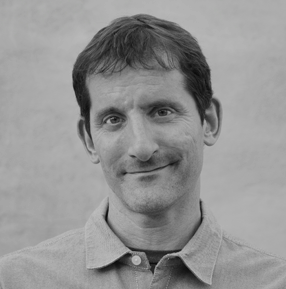Void and Compensation (Karaoke Genesis)
Since when did keeping things to ourselves
help us to better remember them?
We need tutorials from predecessors.
To restore what’s missing makes a science
of equating like with like, or touching
small pebbles on a larger mental abacus.
We hitch a memory of order to ourselves:
From rotating bodies in space comes wind,
by which we’re buffeted, cooled, or graced;
The sun warms both the sunflower
and the angel with whom we might wrestle;
We get some lyrics from a higher power
and then we act on or for each other.
In calculated reunions of broken parts,
the latter must always feel the former,
inherit both the track and the turn.
A situation like an empty orchestra.
And when we try to sing above it, intuit,
and even in our singing are mistaken—
if pitch is something sought and never pure,
if latter sounds like something we can climb
as opposed to where we find ourselves
more recently in our relations, in time,
having been left or starting our leave-taking—
something happened—someone followed someone.
Someone had. Even held. Our formers.
We’re doppelgangers, saintly or undone;
pick a song and listen for your cue.
Here’s the void. Now sing some compensation.
Copyright © 2015 by Michael Morse. Used with permission of the author.
“Karaoke translates into English as ‘empty orchestra’—a portmanteau of sorts from the Japanese words for empty (kara) and orchestra (ōkesutora). I can hardly sing a lick and my limited range yields Karaoke choices that are more talky than sung. And yet I love the idea and essence of the act. Singing lyrics that we learn (or read) parallels what we inherit—as family members, as inhabitants and citizens of particular places, and as poets—from whomever and whatever we follow. What follows is a kind of genesis, a making in which we simultaneously borrow and add our own stamp.”
—Michael Morse

